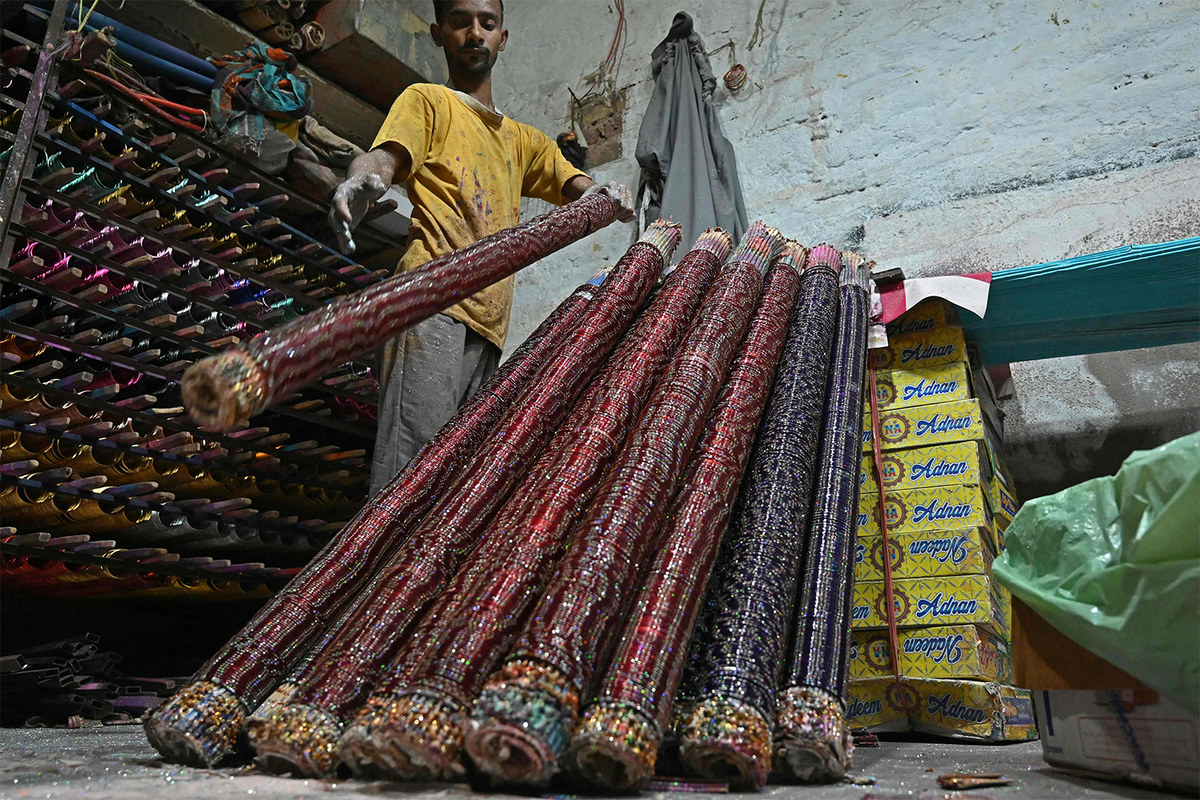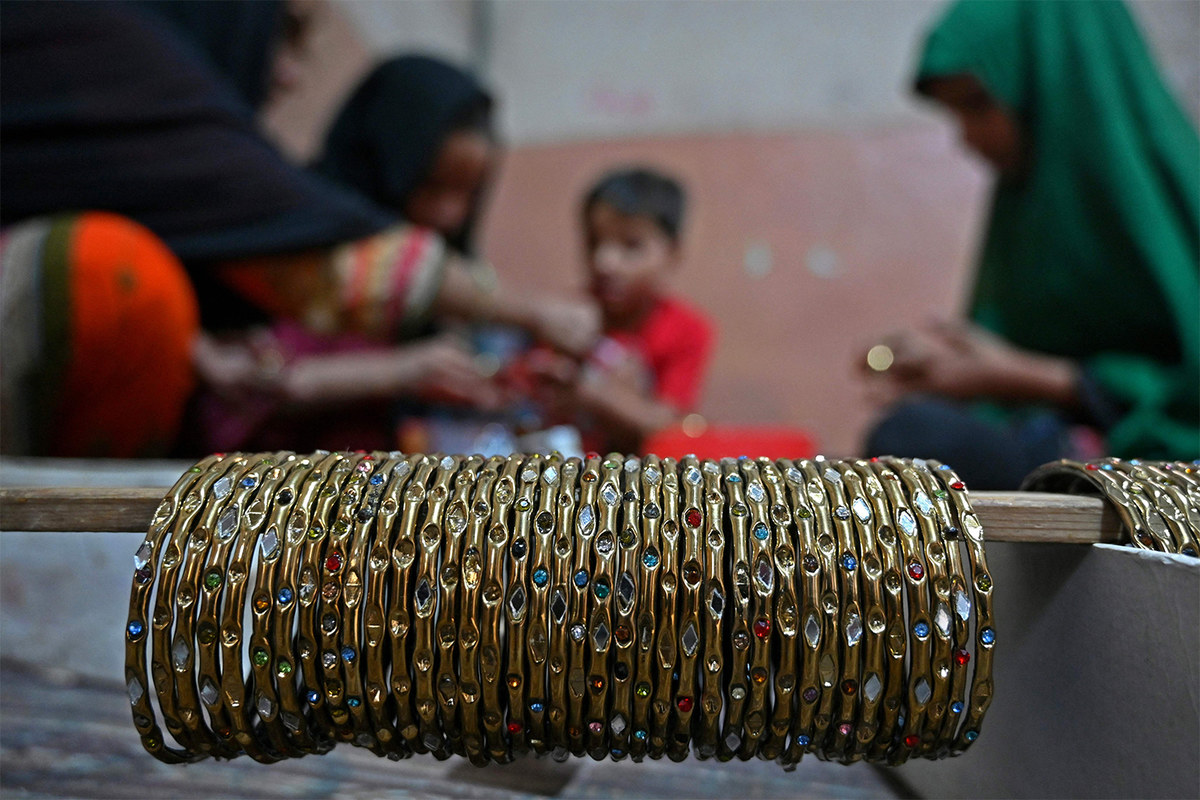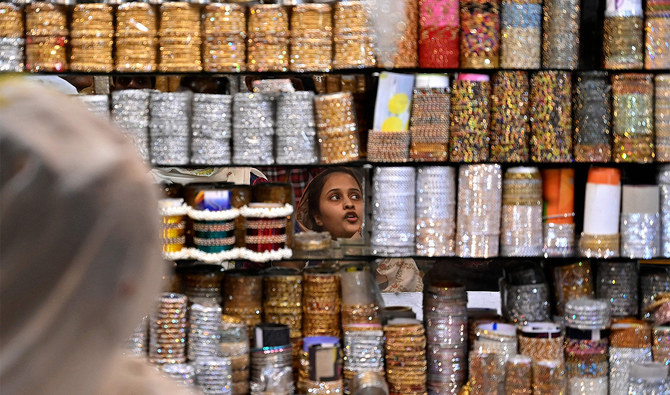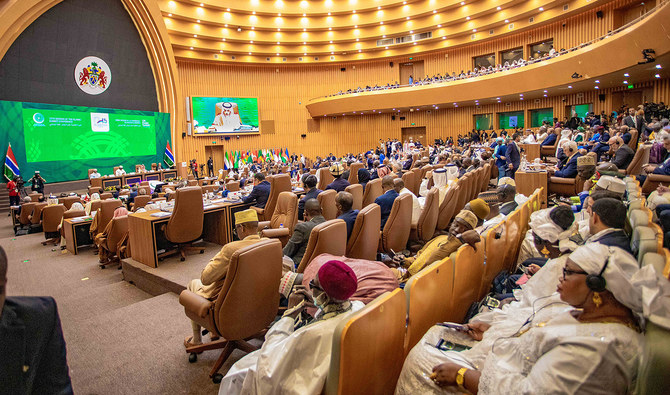HYDERABAD, Pakistan: Layers of intricately decorated bangles are a staple fashion accessory for women in Pakistan, a carefully considered part of their Islamic Eid-al-Fitr celebrations.
More than a dozen people can be involved in the making of a single bangle, from sweltering factories to the homes of designers who skillfully decorate them by hand.
“Whatever the fashion trends, when we attend any event and wear any outfit it feels incomplete without bangles,” said 42-year-old Talat Zahid, who uses beads, stitching and embroidery to embellish bangles.
“Even if you don’t wear jewelry but wear bangles or a bracelet with your outfit, the outfit looks complete.”

In this picture taken on March 31, 2024, a customer looks at bangles displayed in a shop in Hyderabad. (AFP)
In the lead-up to this week’s Eid-al-Fitr festivities that mark the end of Ramadan, market stalls are adorned with a glittering array of colorful bangles, each turned over and inspected for their beauty and imperfections by women who haggle for a good price.
They are often sold by the dozen, starting at around Rs150 (about 50 cents) and rising to Rs1,000 ($3.60) as stones and silk are added.
Hyderabad is home to the delicate “churi” glass bangle, where a single furnace can produce up to 100 bangles an hour from molten glass wire shaped around an iron rod.
The work is arduous and frustrating — laborers are exposed to oppressive temperatures in unregulated factories prone to frequent power cuts, while the fragile glass threads can snap easily.
“The work is done without a fan. If we turn on the fan the fire is extinguished. So the heat intensity is high. As it becomes hotter our work slows down,” said 24-year-old Sameer, who followed his father into the industry and earns less than the minimum wage of 32,000 rupees ($115) a month.

In this picture taken on March 31, 2024, worker Saima Bibi (L) along with her children, adds decorative elements to glass bangles at a home workshop in Hyderabad. (AFP)
After the partition of British-ruled India in 1947, migrating Muslims who had produced bangles in the Indian city of Firozabad took their trade to Hyderabad — where hundreds of thousands of people rely on the industry.
But soaring gas prices after the government slashed subsidies have forced many factories to close or to operate at reduced hours.
“The speed at which the government has increased the gas prices and taxes, (means) the work in this area has started to shrink instead of expand,” said 50-year-old factory owner Muhammad Nafees.
Most bangles leave the factory as plain loops, sent off to be embellished to different degrees by women who work from home, before they’re finally passed on to traders to be sold in markets.
The production is often a family affair.
Saima Bibi, 25, works from home, carefully adding stones to bangles with the help of her three children when they return from school, while her husband works at the furnaces.
“They go through a lot of hands to be prepared,” she said.
















